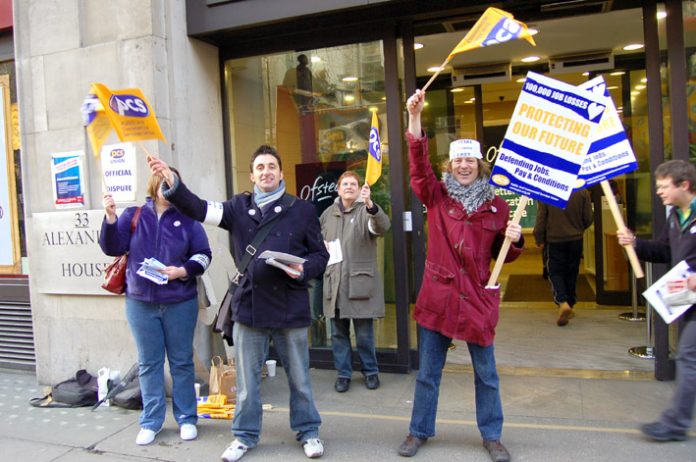Civil servants union PCS General Secretary Mark Serwotka has written to Sir Gus O’Donnell Head of the Home Civil Service about the PCS national executive’s decision to bring members out for a one-day national strike on 1 May.
In the letter he once again states the union’s willingness to meet with O’Donnell or his officials to try to avoid this action by resolving the dispute over jobs, pay cuts and conditions.
The letter sets out clearly why PCS members feel they are faced with no other option than to continue with industrial action to achieve their reasonable and achievable demands which are:
• No compulsory redundancies and relocations
• A fair and equal pay system with increases above inflation
• No more outsourcing without consultation and agreement
• Adequate resources and decent working conditions
• No cuts in the civil service compensation scheme.
Serwotka said in the letter: ‘PCS has been and remains willing to meet with you or your officials either directly or through an independent third party such as ACAS, to try to avoid further industrial action by resolving our dispute.
‘With this in mind I thought it would be helpful if PCS put on record publicaly what we have made clear at meetings would be the basis on which the dispute could be resolved.
‘This letter will be circulated to all PCS members so they understand why further industrial action is necessary.’
Referring to negotiations over jobs, pay and privatisation, Serwotka added: ‘Unfortunately there has not yet been any tangible progress and indeed often a seeming unwillingness by management to accept that there is a dispute or to seek to resolve it.
During this time the situation facing our members is getting worse – as you will be aware.
‘There have been compulsory redundancies in both DTI and DEFRA, others of our members are under notice and more are threatened, particularly now in DWP.
‘This is despite the best efforts of Cabinet Office/CCSU to deal with such situations.
‘There are also proposed closures and relocations, which will not only reduce the quality of service our members are able to provide but also impact disproportionately on female, black, ethnic minorities and disabled staff.’
Serwotka stressed: ‘Our members do not seek to block change, but they do want to be treated fairly, not bullied through threats of redundancy and relocation.’
